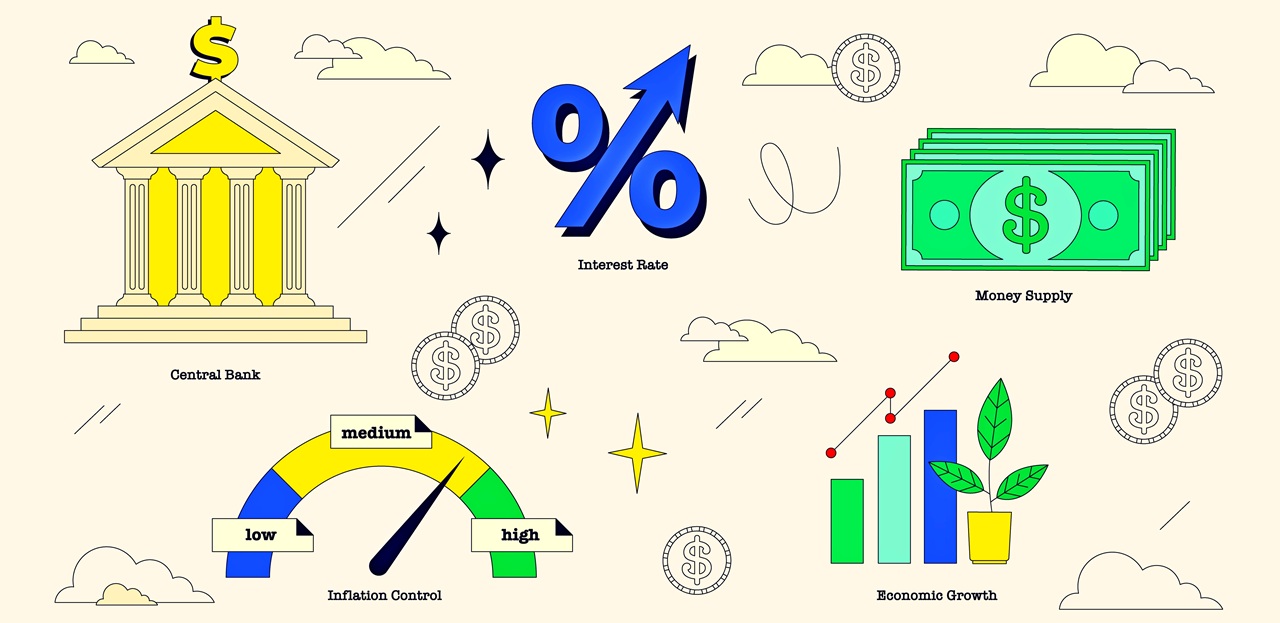
The Reserve Bank (RBNZ) probably has a fairly easy decision to make about the Official Cash Rate (OCR) in the coming week.
But what happens beyond the coming week? That's looking as clear as mud.
The RBNZ is still kind of obliged to cut the Official Cash Rate (OCR) on Wednesday, May 28 to 3.25% from the current 3.50%.
In doing so it would follow the script of then RBNZ Governor Adrian Orr, who said after the February OCR review that the RBNZ would likely cut the OCR again in 25 basis-point chunks at both the April and May reviews.
Orr then of course departed, but the OCR was duly cut by another 25 basis points in the April review, although the accompanying commentary with the decision artfully painted around the earlier indicated further cut in May and has left the RBNZ with plenty of room to NOT make another cut in the coming week if it were so to decide.
The next decision's much harder
But assuming a 25 point cut DOES transpire in the coming week, what happens next? That is the hard bit. Perplexing.
Only about a month or so ago the financial markets were aggressively pricing in an OCR level of 2.5% by the end of this year, but there's been notable pullback from this more recently. At time of writing - and this does change quickly - markets were pricing in a 100% chance of the OCR being dropped to 3.25% in the coming week, but beyond that bets are being hedged.
Another cut to take the OCR down to 3.00% is seen as happening in either July or August. And there's currently around a 60% chance the OCR will be dropped to 2.75% by the end of the year - and that, according to current market pricing, will be the low point.

The forthcoming OCR review on Wednesday is one of those that comes complete with a new Monetary Policy Statement (MPS) from the RBNZ. Some 60-ish pages of words, graphs, charts and photos to paint a picture of how the RBNZ is seeing the world. The last MPS came with the February OCR review.
Of some interest on Wednesday will be the performance of Governor Christian Hawkesby, who's been officially given the job for six months but who would, you assume, quite like to get the gig fulltime. Hawkesby presided over the last OCR decision in April but this is his first one fronting the OCR press conference and MPS combo.
All eyes on the MPS
But aside from that, all eyes will be on the new set of forecasts at the back of the MPS and particularly on the projections for the future level of the OCR. The February MPS suggested a cycle low point of perhaps 3.0% by late this year, though it was hedging bets between 3.00% and 3.25%.
So, clearly there will be much interest in whether the RBNZ has decided to lower that track and show more likely future cuts. Major bank economists, with varying degrees of intensity, have been calling for more cuts. But the RBNZ likes to heed its own advice when making decisions.
And for its part the RBNZ has been gently trying to remind folk that its forward track projections for the OCR are very much that - a projection based on certain assumptions that may or may not lead to a certain outcome.
Clearly it has somewhat rankled with the RBNZ that economists and the like tend to gravitate straight to the OCR track and treat that rather as gospel of what will happen. I get the point the RBNZ's making, but the RBNZ does need to take on board that if you are going to make even the lightest suggestions of what may come to pass in the future, people will grab on to those as the 'from the horse's mouth' view. If you don't intend people to take your projections seriously, don't make them. Or at least, don't make them publicly.
It's interesting to note that the RBNZ has been pondering the idea of publishing multiple economic scenarios and policy responses, and we should be looking out for if the central bank does decide to do something along those lines in this new MPS.
The appeal of such an approach is obvious, and it has to be said if one were to consider running multiple scenarios on what might happen then now is a good time to take up such an approach. The global political and economic situation is in complete flux. The only problem is that such are the possible scenarios it may require a tome of biblical proportions to cover everything off.
Keeping it on an even keel
The RBNZ has to try to keep NZ Inc on an even keel, while worrying about all sorts of turbulent seas globally.
But pushing all that global stuff into the background as much as we can, what is happening in NZ Inc?
Well, in truth, that's all a bit murky as well.
Here's the quick, potted history:
- Our inflation soared to a peak of 7.3% in mid-2022. The RBNZ combats high inflation by raising the OCR. So, it did that - from just 0.25% at the start of October 2021 to a peak of 5.5%. Since August last year the OCR has been gradually dropped, to its current 3.5%.
- Annual inflation as measured by the Consumers Price Index was 2.5% as of March this year. The RBNZ is mandated to achieve inflation within a 1% to 3% range and specifically targets 2%.
- Our economy tanked badly, with our GDP falling about 2% across the June and September quarters last year, before resurfacing with a 0.7% rise in the December quarter.
- Unemployment having risen from 4.0% to 5.1% in 2024 then stayed at 5.1% in the March 2025 quarter, which was below the RBNZ's pick of 5.2%.
The economists calling for more aggressive rate cuts are saying the economy is not picking up strongly enough and will need more stimulus.
But in truth, signals are mixed. The BNZ-Business NZ Performance of Manufacturing Index (PMI) is now showing expansion after nearly two whole years of contraction. But the services sector, which makes up about two-thirds of GDP, is still mildly contracting. Retailers are doing it tough and generally speaking wallets that were put away last year are still not being much sighted. But a lot of folk will be about to get some mortgage relief in coming months, regardless of what the RBNZ does from now on with the OCR.
The RBNZ has to decide whether the tentative signs of economic recovery currently visible are enough, or whether more OCR cuts will help.

BUT, what's inflation doing? As mentioned above, our annual rate of inflation as at the March quarter was tucked in the 1% to 3% target range at 2.5%. Global ructions are, however, stirring the so-called 'tradables' (IE imported) inflation.
Statistics New Zealand's monthly Selected Price Indexes (SPI) now give a snap read on nearly half the components of the quarterly CPI measure. And the latest month's release was not one to settle the stomach. Annual food price inflation hit 3.7%, which is the highest level in nearly a year and a half.
Economists have started to upwardly revise their picks of June quarter inflation. Economists at the country's biggest bank, ANZ, for example, tweaked up their pick for June inflation to 0.6% from 0.4%, giving an annual figure of 2.8% against their earlier expectation of 2.5%.
Now while the popular view at the moment is that this current mini-spike in inflation will prove short-lived - and therefore the RBNZ can look past it - 2.8% inflation, if that's what we get do end up with, is starting to get uncomfortably close to the top of that 1% to 3% range.
And then there's the RBNZ's own surveys, taking in views on future inflation. The RBNZ used to take quite a bit of notice of its quarterly Survey of Expectations, which canvasses the views of business leaders and professional forecasters. However, the response to this has thinned out in more recent times - there were just 41 responses to the latest survey.
Plenty we don't want to see, here
While the RBNZ will be keeping that survey going, it says, it has now put a lot of time and effort into getting a new one up and running - and the first results of this one came out this week, and they were not what the RBNZ would have wanted to see.
The newly minted Business Expectations Survey had an impressive 636 responses across a wide range of sectors, which makes it potentially a very valuable new resource. That's the good news. The bad news was that the respondents saw future inflation as being higher in all of the time horizons (and they go from one year to 10 years) that they were asked about.
And, just for good measure on top of all this, global bond yields have been rising again this week...
So, would the RBNZ be put off contemplating future OCR reductions?
While the RBNZ might not like it particularly, there will be much focus on the OCR projections in the new MPS.
Banks have probably cut their fixed rate mortgages about a far as they are comfortable doing without them being able to see more scope for future OCR cuts.
So, about that forward track?
The upshot is that if the RBNZ were to leave its forward OCR track largely unchanged from that contained in the February MPS, this could signal that there might not even be any more cuts to the OCR this year (assuming the rate IS cut to 3.25% in the coming week).
But then again, maybe the RBNZ will look past the current inflation mini-spike and view the global ructions as requiring further restorative action, and therefore produce an OCR track that does show the OCR going much lower, maybe as far as 2.5%.
If that happens there will be a renewed flurry of mortgage rate activity.
However, I tend to think that in all the current circumstances the RBNZ will lean towards a very cautious approach and will probably try to avoid 'locking itself into' any particular future course of action. This may well frustrate the banks.
Make no mistake, the RBNZ has a lot to think about. The outcome of some of this thinking will be revealed on Wednesday, 28th. Don't miss it.
*This article was first published in our email for paying subscribers early on Friday morning. See here for more details and how to subscribe.
27 Comments
Worth looking at the 4.1% annual increase in prices paid by our biggest industry sector (wholesale). The average input cost hike across industries was higher at just over 5% (energy prices the big driver). There is a price pressure wave coming - if oil prices go back up, the RBNZ could be in a corner in Q3.
I know there are people that still believe in inflation demons and the exorcising powers of the high priests at RBNZ. But we pay cost plus margin in NZ - the OCR lever works to speed or slow the housing market, and therefore the flow of freshly printed bank money, and any consequential consumption (depends on propensity to spend of buyers for reno, and whoever cashed out of the market to let someone else in).
The 25pts reduction appears locked in but how about a crowd pleasing 50pts with a tightening of DTI/LVR? Making swing-voting mortgagors smile, and turbocharging govts new investment boost deal. Now, would businesses use that credit flow to invest in productivity boosting machinery and tech, or flashy UTEs and commercial real estate?
I like my tradies to turn up on a horse.
I like my tradies to turn up.
You can't cross the ditch on a horse.
Good one, the old "everyone's going to move to straya"
Lol, have you seen the stats. I cannot emphasise how many people i know are driving their young ones to the airport. We are educating our kids to go and work in Aus. Madness.
It's the consequence of having a wealthy mining nation right next door. Been going on 60 years, shouldn't be a shock to anyone.
On the flip side, people are getting educated in other countries, only to end up here.
It's not like we've a rich monoculture we're at risk of losing.
Humans were always nomadic. Move, deplete the resources, move on to where there are more resources to exploit. The issue being that post WWII mobility was low due to the cost and information availability. Today you can fly anywhere for not that bad a price, and with the internet, mobility has never been easier. People will therefore naturally migrate more to where greater opportunities await. Many will ask themselves why waste the next 5 years in NZ if they could save the same amount in 2 over in Australia then come back if they choose, or move on again. This is the plight of the youth now, who are the generations with the most information available than any of their predecessors.
(depends on propensity to spend of buyers for reno, and whoever cashed out of the market to let someone else in).
I think this is a huge issue here JF, Those lucky enough to have got cash out are now more aware how hard it might be to make more free cash.... its damn hard to save $1mil but was easy to make out of property for years as capital gains. I am not so sure that people are in spending mode even if they have cash in hand.
We will be 5 years into the lost decade by Xmas.
I have a mortgage renewal mid June. Should I wait until after the OCR review to fix and should I fix for six months or twelve?
Trying to accurately forecast the state of global economics in 12 months is fairly difficult given the state of things.
If I was flipping a coin, I'd say things are more inclined towards stimulus by then.
You could split in 50/50
Been out of the mortgage scene for at least 15 years. Can't you have a bob each way?
It's worrying you're asking for advice in this comment section...
Just curious to see what other's think. Yvil usually has the best advice. It's not really a big gamble for me either way.
I always ask Yvil about incoming storm systems, He called the top in Oct 21, and he has called the bottom quite a few times now.....
I have never "called a bottom". Keep yours clean.
Zach, the CPI & GDP data we get in NZ is 3-5 months out of date. I own businesses and employ staff. From what I see, NZ is currently falling back into recession, this started in April and won't be reported until August! Therefore I don't believe in rising inflation beyond 3% in NZ, but in the need to support the economy with more OCR cuts than many think. I'm fixing for 6 months.
Yes, you can see this in the benefits, earnings, and high-frequency jobs data. Very real risk of a dip back down. Basically, lower real wages and higher costs (energy, rates, insurance etc) are reducing disposable income faster than te (very slow) reduction in mortgage payments can compensate. If petrol and diesel prices go back up, we'll be in real trouble.
Stagflation
Just in time for the next election then. One term government?
Put it on a 6 month rate while you wait to see how things unfold. Nothing happens that quickly when it comes interest rate changes.
Further debasement of the cost of debt simply widens the gap on the have/have not. It supports low/non productive speculation for those that have, while pulling up the access ladder to the have not.
The only winners are banks and specucestors.
it seems to me across both capitalism and communism , that there are a small number of winners and a lot of drone workers at the bottom..
Most in NZ prefer capitalism rather than "dictatorship of the proletariat" although sometimes i think capitalism and our form of democracy are much better at hiding a subtle dictatorship. Maybe it's now dictatorship of the unelected officials at both central and local level.
This is most large, complex civilisations.
Capitalist drones often fare more favourably than communist ones though.
The next OCR decision using just as easy as this one, it's a cut of 0.25, and the one afterwards too !

We welcome your comments below. If you are not already registered, please register to comment
Remember we welcome robust, respectful and insightful debate. We don't welcome abusive or defamatory comments and will de-register those repeatedly making such comments. Our current comment policy is here.